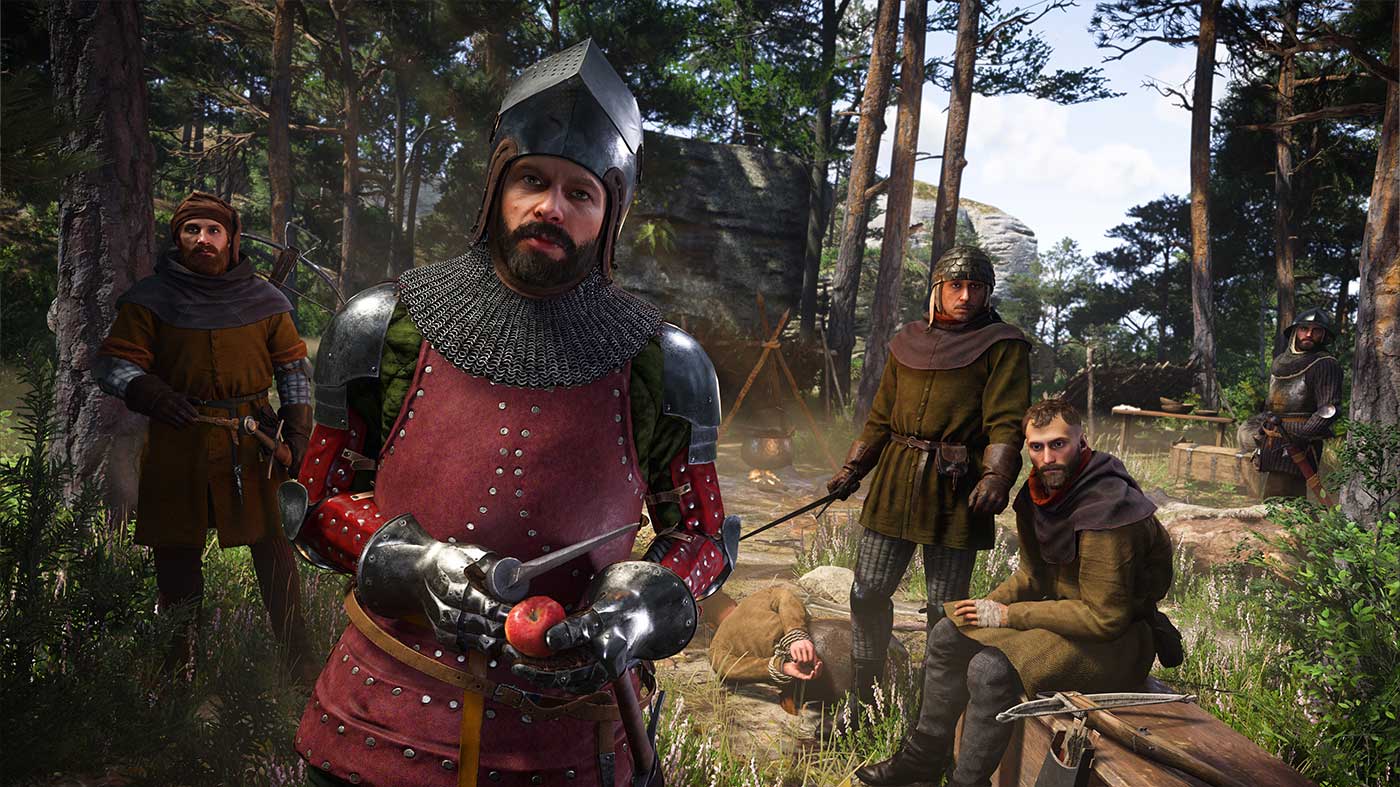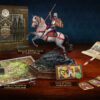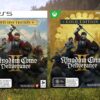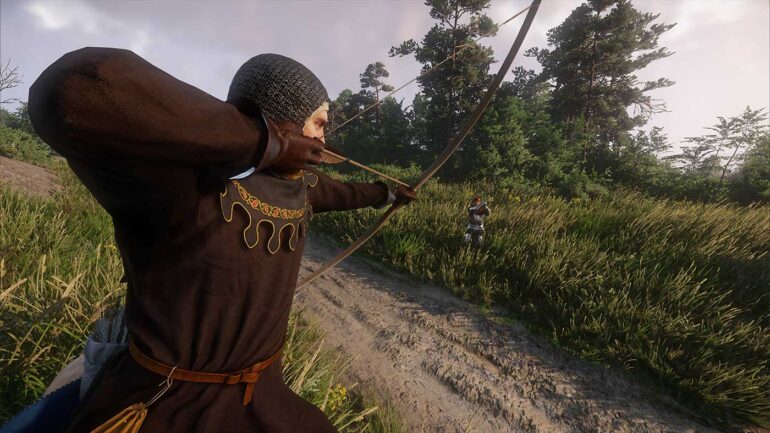Ahead of the news that Kingdom Come: Deliverance II is bringing its release date forward, we had the opportunity to get a hands-on preview of the game including an interesting side quest for Henry in the town of Kuttenberg. Tobias Stolz-Zwilling, the Global PR Manager for Warhorse Studios introduced the game to us, and after our time with the game we had the opportunity to sit down and talk all things KCD 2.
Just like Henry’s story itself, Kingdom Come: Deliverance’s origins is pretty significant – with a successful Kickstarter campaign bringing the game to life. Did you envision from the start the legacy that would be created from that?
TOBIAS: Absolutely. I mean we envisioned the original game, we didn’t envision the success that would be there! Honestly there were two sink or swim situations; one was the Kickstarter – if that would have failed then we would have shut up and just gone. The second was the actual release of KCD – because the press were reacting well, but those that we had already hooked in the Kickstarter were our main audience – we didn’t know at the time how regular players would receive the game.

I can remember the time when we were traveling to our publisher back in the early days, in Munich where they had their head offices, and we were in the car talking to our CEO doing guesses like “one million copies, is that the same thing, will we sell it? And if so, maybe in the first year or half a year”. Nobody would have guessed that within a week we had hit the million, and then within a year it was the second million. We believed in the game and we knew it was good and put our trust in it, but we didn’t know it would bring this much success.
Unlike so many other games that focus on adding fantasy elements to their games, KCD:II is grounded in history and realism. What is it like bringing inspirational and historic places such as Kuttenberg to life?
T: Oh, it’s amazing. But not only for us – what I find fascinating is that KCD is more – and I don’t mean to sound arrogant in this way – but it’s more than just a video game. For Czech Republican people, it feels more like a cultural export kind of thing: when the city of Kuttenberg found out that we would set KCD: II in their town, the mayor who played the first game was absolutely shitting kittens – he was like “Okay, okay, breathe everyone!” He wanted to be heavily involved, they wanted to fill up their tourist information stands with KCD merch and pictures and stuff.

When KCD: II was announced, it was on the public news in the evening, and on public broadcasts – I mean, imagine BBC would talk about the new English game or whatever, we’re like that’s not happening anywhere else! But this is just a side effect of the game; we want to make a game that is telling a story which is based on events that really happened. So the effect that it had or the side effect is that it had all of these cultural aspects of it.
Kutná Hora (Kuttenberg’s Czech pronunciation) is still a wonderfully medieval city, but we had to take it back to 1403 – so it really is a lot of work, and if you actually think about it, it’s more work than if you create a fantasy world.In a fantasy world you can create whatever you like according to what you need, where we have to create things the other way around, with the elements that already exist.
THE CHEAPEST PRICE: $89 ON AMAZON WITH FREE DELIVERY
Henry’s journey in the first game is immense, and so was the world-building that we got to see. KCD:II is set to be so much bigger, with around 80 to 100 hours of gameplay; how do you balance the expectations of returning players while making it accessible for new players as well?
T: Very good question. KCD:II is an absolute evolution of the first game, right? So this in itself should already – hopefully please the expectations of the fans of the first game. They want more of the same but to make it better, and that is exactly what we did – more of the same, but made it way bigger.
So everything you know from KCD was transferred to the second game and improved – the learning curve wasn’t as steep as it was before, it should be more accessible and just more enjoyable, and the package should feel more rounded without having to dumb it down or making it too easy to digest for everyone.

It’s still a special game that does things differently to most other games – we don’t drag you by the arm through the game, it still requires you to think about the situation. [The preview we played] was just a tiny side-quest; we told you that you had to steal a sword, but how you do it is totally up to you, there’s no visual hints, no GPS or whatever, you have to make your own way.
For the newcomers its still just a very deep roleplaying experience with knights and castles, and that’s pretty much everything they need to know; we want to make sure nobody feels out of place or that they’ve been left out of something. The beginning of the game focuses a little bit on what happened in the first game, not too much because it’s not all that relevant. We tell you “here’s you, here’s your best friend, this is your current task, good luck and have fun”. The rest comes from either Henry being haunted by his nightmares which will slowly tell you what happened, but 90% of the people you’ll meet will be absolutely new.
Following on from this, the NPCs in the game have been said to be totally unique with their own lives. How hard was that to implement, and how important was it to the team to do so?
T: Really, really very hard because the city itself has a thousand NPCs or so, but there’s a huge amount of people who all go through daily cycles – not everyone has their name or whatever, so at some point its very hard to just have them all be unique. But we have a very good technical system for clothing and for looks and hair and so on, so at least they look different – some of them will have names and some of them are really important for the game.
The baseline we crafted already in KCD where the NPCs have daily cycles is actually beneficial – and placed into the RPG system it is tricky for development because everything can mess with it. So if the character wakes up in the morning and washes themselves then goes to work, after work they might go to the pub. When they go to the pub they might get tipsy, and when they get tipsy they’re easier to pickpocket, so you can wait for them to come out and you can try to pickpocket them easier or whatever.

The quest you played today – you had to steal the sword. If you went to the location during the day, all the doors are open; but everyone is there and awake, and they are all roaming around, so stealth gameplay will be harder. But if you enter the location during the night, the doors are locked, but its easier to move around because everyone is asleep or not around. The daily cycles are there not to be abused, but for you to work with them and use them to your advantage – if you try things during the day and fail, you can try again at night. Or you can poison their food, they all die, but then another NPC will not like that you killed people. So they definitely have an impact on the game.
We’re pressed for time, so our last question: Mastery of weapons is in the hands of the player, and this time around there are even more weapons to master, including more ranged weapons such as crossbows. With an already deep combat system, what was it like fine-tuning it this time around?
T: Combat was the biggest feature from KCD that got reworked the most – but when I say reworked, we didn’t change the basis of it. It’s still similar to the first game, swordplay with different attacking zones, but we tried to make it more accessible for the players, so that the learning curve wasn’t as steep as it was before.
The weapons should all feel differently, and play differently. If you take the sword, that’s for the master sword fighter if you’re that kind of person – it has all the deep mechanics and intricate combat styles. But if you feel like you do not want to invest the time into sword-fighting, you don’t have to – you can use the mace or the axe. They’re not worse weapons, they excel at other parts of the game, but they play differently – the axe is something you just whack the enemy in the head with.

Instead of the ‘star’ that’s in front of you (referring to the attack mechanic from KCD) with four movement directions, you only have three or two, or even one. It’s really an RPG question that you as a player decide and work out what works for you. The alchemy system as well, if you use it, you can create great advantages out of it – spread poisons on your weapons, make yourself stronger and so on.
We definitely had a ball playing through KCD:II’s preview mission, and true to Tobias’s statements, none of us played the mission in the exact same way. Kingdom Come: Deliverance II is shaping up to be a journey of epic proportions, and we can’t wait to see it when it launches in early 2025.



